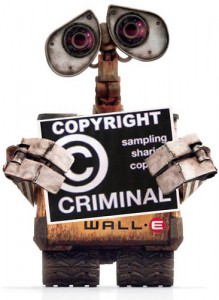Don’t Copy a Website – Especially if it Belongs to a Law Firm
The old saying, “why mess with a good thing’ immediately came to mind when I read a recent case about a law firm copying another firms entire webpage design, from the layout to the cases won.
An associate at the Florida based law firm Gordon and Doner was doing a routine google search of himself (funny that was how he found this – oh lawyers and their egos) when he stumbled across his picture and name for a British law firm. Although some of the names were changed on the copy site, and minor tweaks were inserted in the text (i.e. they had changed the currency from dollars to pounds) everything else was identical — from a list of Gordon & Doner’s courtroom victories to photos of staffers participating in a charity run.
Although I am sure Gordon and Doner are flattered that a firm across the pond would like their layout so much they would want their own website to look like it, this goes far beyond inspiration. So, what exactly are they asking for?
The law firm’s request for an injunction and damages from the defendants includes “a report detailing all of their activities in connection with the creation, revisions to, registration and hosting of the offending Web site, remedial advertising, actual damage, attorney fees, costs and punitive damages.” Translation: they want anything and everything they can plead! When lawyers instigate lawsuits against other lawyers and law firms, it is always interesting to see the interplay between the lawyer as an advocate and the lawyer as the aggrieved plaintiff.
This is a stray from the norm. The most common type of “copycat” websites usually are in the realm of higher end goods such as fake designer purses, clothes, and jewelry. Online shoppers looking for a bargain will stumble across a website bearing the name of the brand and prices well below retail value. The only problem is that, if the goods ever arrive, they are counterfeit.
LegalMatch offers some helpful tips for when website copyright infringement has occurred:
- determine whether you want the infringer to stop, or you want damages for the use of your material, or both;
- Determine what material you have copyrighted because if you have not actually copyrighted the copied material you are going to have a hard time proving the infringement;
- Collect evidence that your copyright has been infringed;
- Send the infringer a notice to cease and desist;
- Contact the internet service provider of the copying site about removing the site or at least removing the offensive material.
I think it is interesting to see the range of websites that have been affected by this type of copyright infringement. Although it is a shame for the law firms and retailers, I think the real victim is the consumer that is duped by the copied website. They don’t get the proper information, and are usually left with no legal recourse.


Comments
OK, let’s paraphrase – do copy, but don’t be captured )) Just kiddin’
Nice article btw